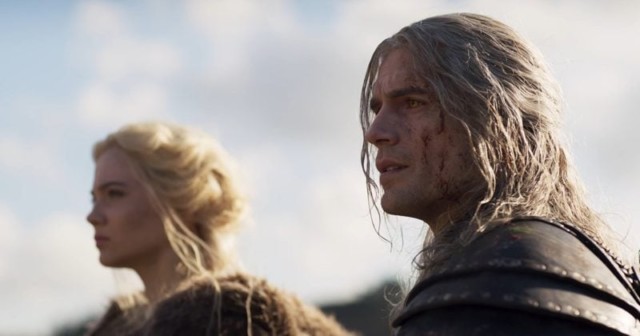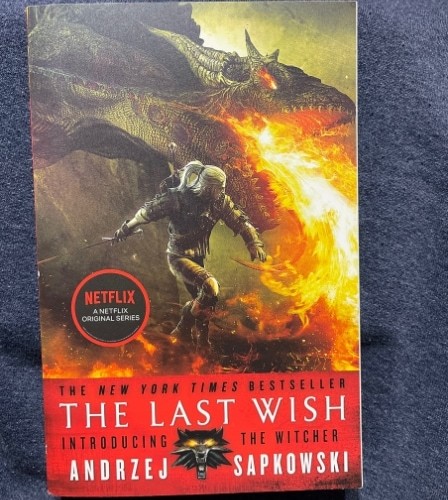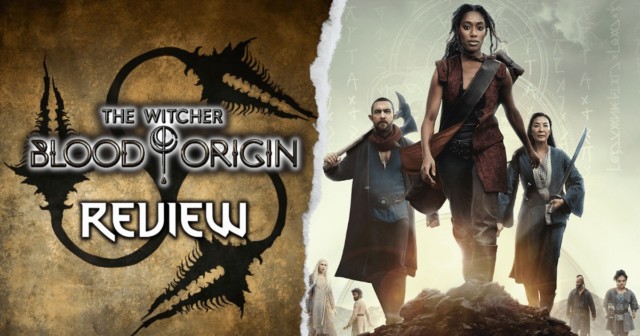The Witcher Book Review: ‘The Last Wish’ by Andrzej Sapkowski

In a world where fairy tales are born and monsters are real, lives a man who denies the first and kills the second. His name is Geralt and he is a witcher. From childhood he has been raised with one purpose: to destroy monsters at every turn. But just because something looks like a monster doesn’t make it evil, and appearing to be good is no guarantee of kindness. It’s up to Geralt to determine what is right or wrong and protect the world from the real monsters. Meet this last great warrior in Andrzej Sapkowski’s The Last Wish (Translated into English by Danusia Stok).
[Warning: My review of The Last Wish contains some spoilers!]
The beginning of the witcher’s tale
Witchers are taken from their families at a young age and trained to be ruthless assassins. They are subjected to horrible magical and medicinal transformations to make them into the perfect killing machines. Few candidates (the safe way of saying children) make it through the trials alive to become witchers.
Of those that have made it, none have undergone as many mutations as Geralt of Rivia (played by Henry Cavill in Netflix’s The Witcher series). He executes his work with amazing grace and skill. Songs are sung about him throughout the land.
Yet most of the time he is alone. Most people are afraid of witchers. Not only are they highly skilled fighters but the many trials they go through also rob them of their emotions. This is supposed to make them better warriors. But something went wrong with Geralt. He claims to have no emotions, and he doesn’t seem to have quite the responses that most humans have, but there is no denying that he does have some feelings and attachments.

The Last Wish shows attachments aren’t weaknesses
One of these attachments is to his friend Dandelion. Dandelion is a wandering troubadour. He and Geralt have many chance meetings during their travels. And whenever they meet up they travel together for a while. Dandelion helps to bring some humanity to Geralt, and mischief. Geralt always seems to end up in some kind of trouble when Dandelion is around. Sometimes it is the poet’s fault and sometimes he just seems to attract trouble.
Geralt’s other attachment is to Yennifer (yes with a Y). Yennifer is a sorceress. Like Geralt, she underwent numerous magical changes to become what she is. Those changes left deep scars that can’t be seen. But Geralt sees them. And he falls in love with her, although he denies even being able to feel love. Their weird on-again off-again romance is heartbreaking. Both are so afraid that they aren’t enough and that they can’t really be happy that they sabotage their own best chance at happiness before they can really even get started.
A different style for this Andrzej Sapkowski novel
The Last Wish isn’t your normal adventure book with one large exciting story tying the chapters together. It’s more of an anthology or even just an accounting of Geralt’s life. There is no overarching goal that Geralt is trying to achieve. No big adventure, war, treasure hunt, or promise to fulfill. Even the title doesn’t come in until the last story, and it is only related to that one story.
It’s also interesting to me that each story didn’t fit neatly into one chapter. Some stories had multiple chapters, some stories shared chapters. It was almost more of a journal but presented as a normal, third-person narrator novel.

What it really reminded me of is a monster-of-the-day television show. Fans of early Supernatural seasons or X-Files will enjoy and appreciate the format. I actually enjoyed the lack of a higher purpose. I’ve always wondered something about heroes that have big adventures: what do they do when it’s over? I mean you save the world and then what? I felt like The Last Wish gave me a glimpse of the answer. They just keep going.
Now Geralt doesn’t save the world (that’s the point I was making a couple of sentences ago) but he does have some really harrowing battles. And he just gets up the next day and goes to the next village and does it all over again. This made him seem more real because The Last Wish was just his daily grind. He wasn’t someone fantastic who did something incredible and then disappeared. He was there day in and day out just working to make things better when he was. It was a really different approach to the hero genre and I really enjoyed the change.
Multiple media forms try to tell Geralt of Rivia’s tale
Geralt’s exploits as a witcher are so exciting that one form of media just wasn’t enough for them. The Witcher has been transformed into a video game and a Netflix series of the same name. The first season of The Witcher was based on The Last Wish and Sapkowski’s second book Sword of Destiny (that review is coming soon). The second season was based on The Blood of Elves. The newest season, coming out June 29th and July 27th will be based on Time of Contempt. And hypothetically the fourth season will be based on Baptism by Fire when it is released. The video game is set in the future after the books and is its own story.
Now all these adaptations are fine. Plenty of people like them (I enjoyed the Netflix series). But for me, the best form will always be the books. The detail is so much richer and the internal thoughts are just too difficult to translate to the screen. So if you already have experience with The Witcher through these other outlets, I highly recommend checking out the source material.
The Last Wish has a bunch of exciting mini-adventures. Part of what made the book so fun to read was the number of fairy tales that Sapkowski weaves into Geralt’s exploits. I have always loved fairy tales so seeing Sapkowski’s twists on these stories made my day. As he says “in every fairy tale there is a grain of truth” and it was fun to see the “truth”.
My Rating: 8/10
The Last Wish by Andrzej Sapkowski (Translated into English by Danusia Stok) is available now! Will you be checking this novel out? Let us know on Twitter or in The Cosmic Circus Discord.



